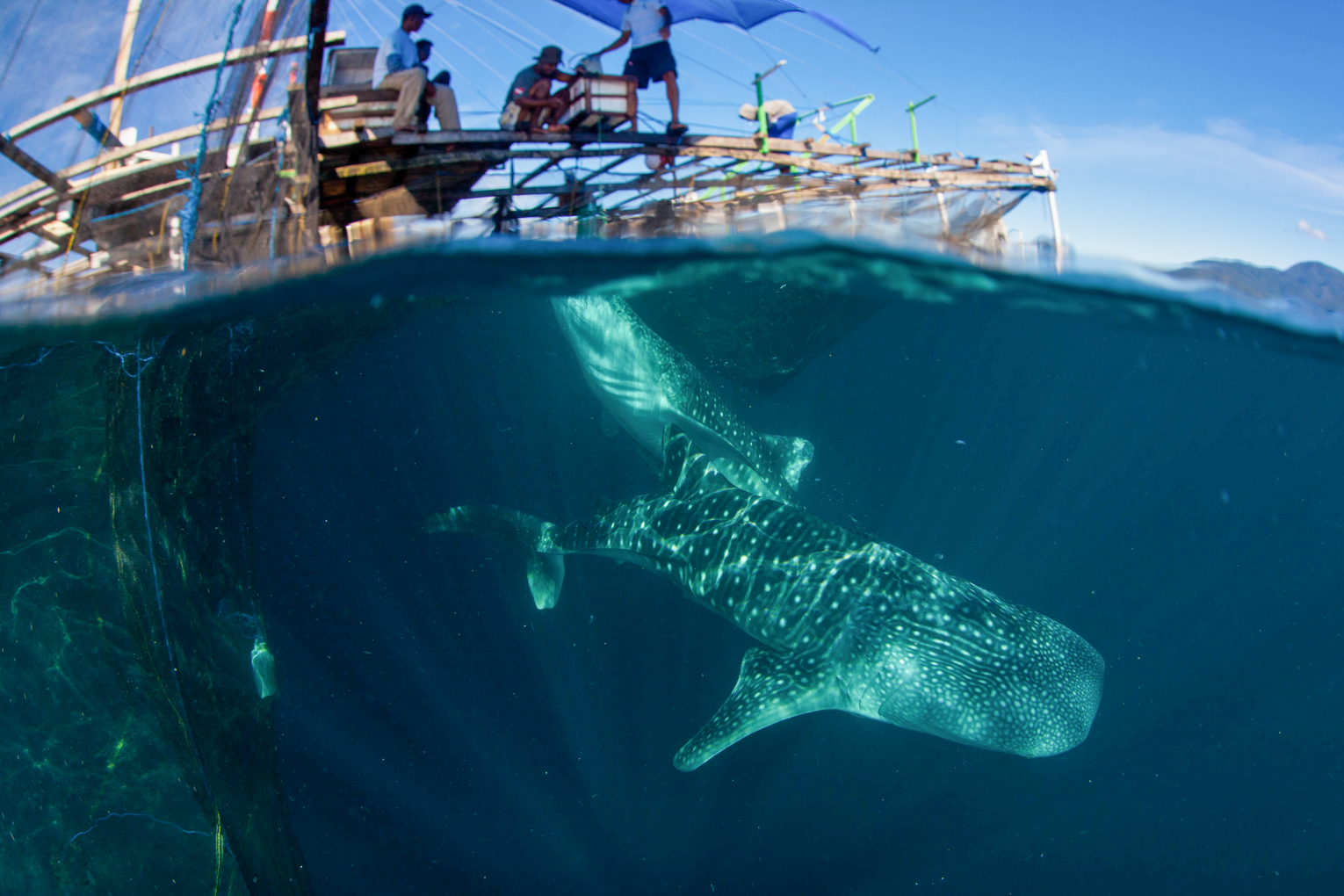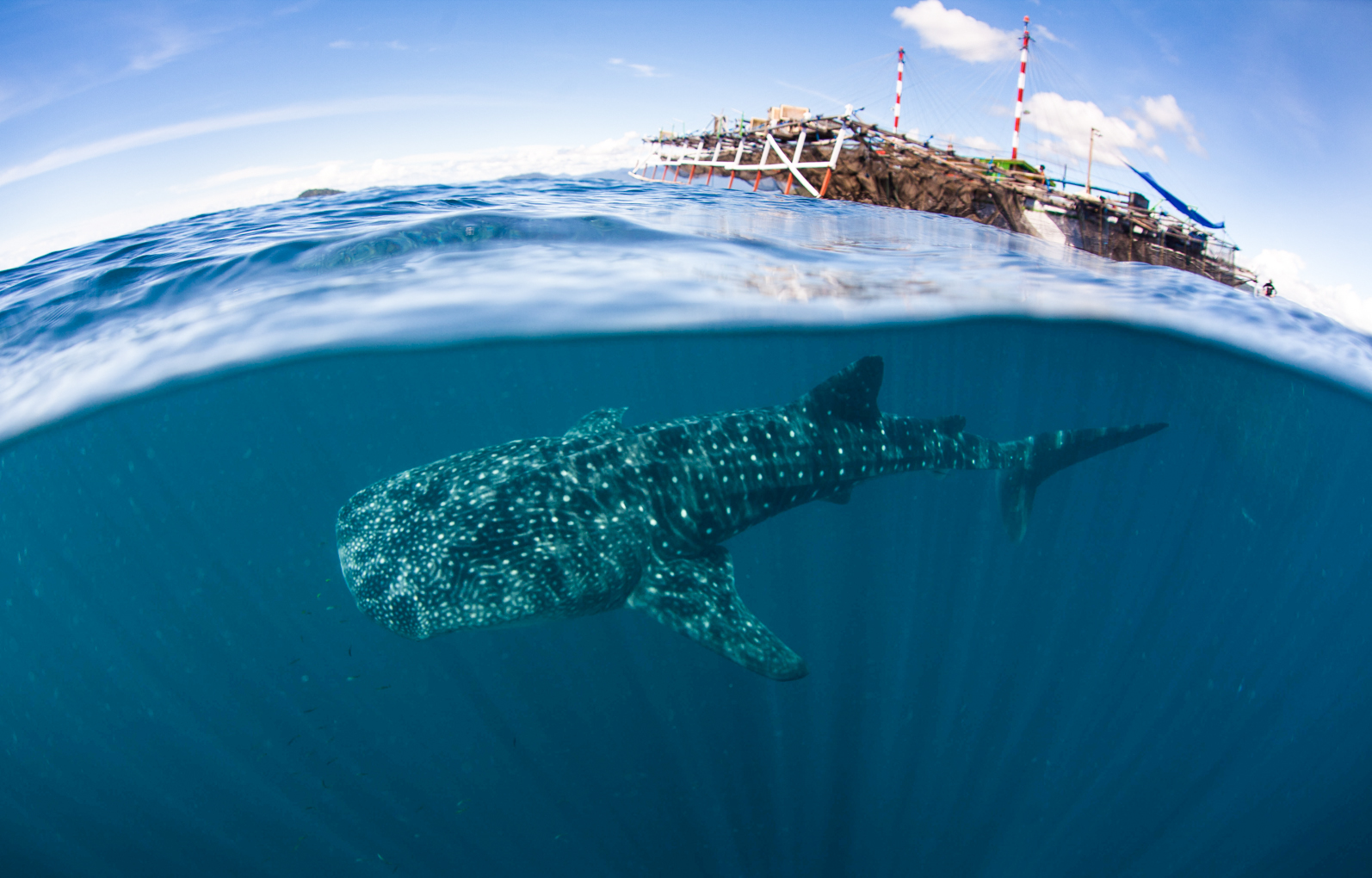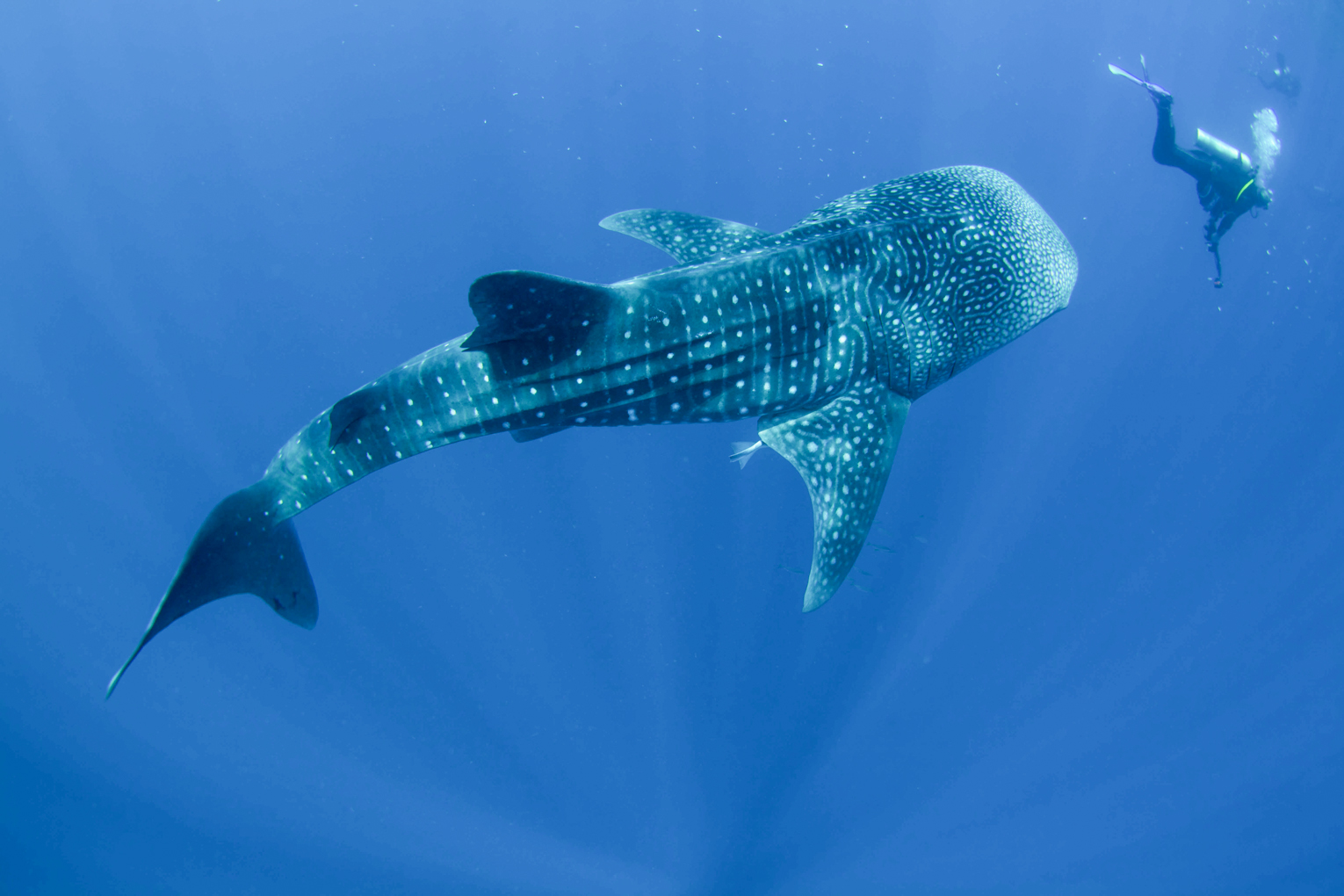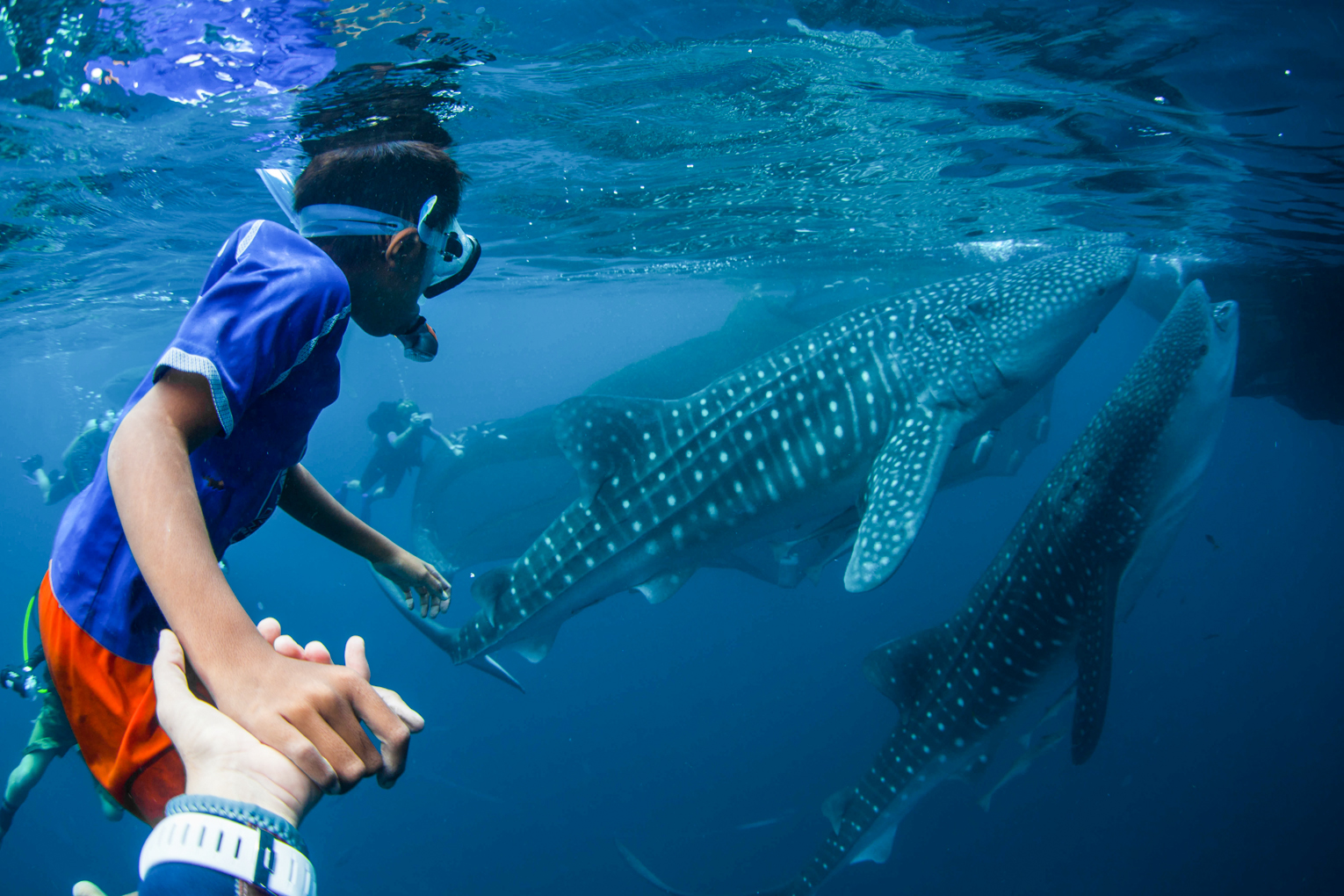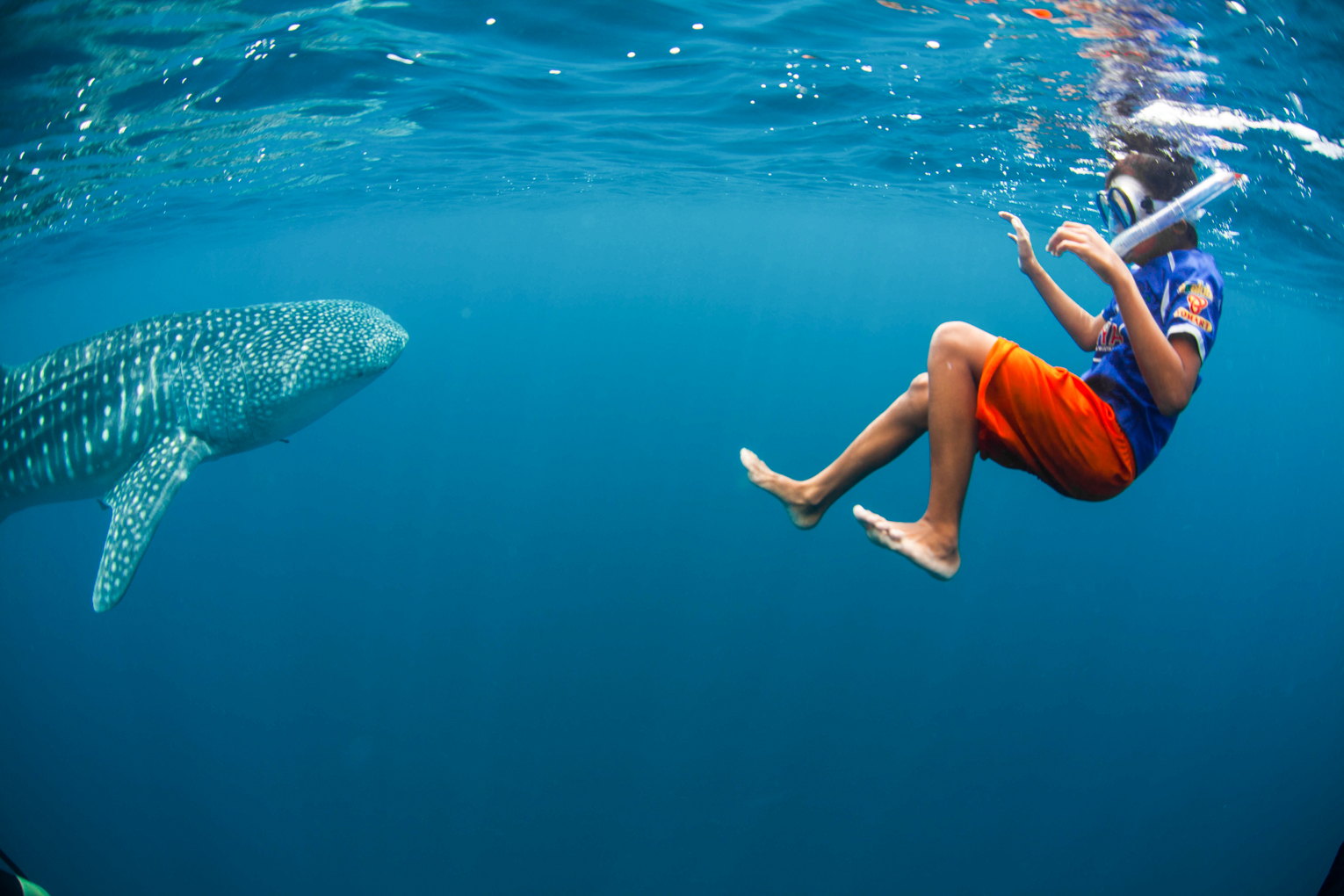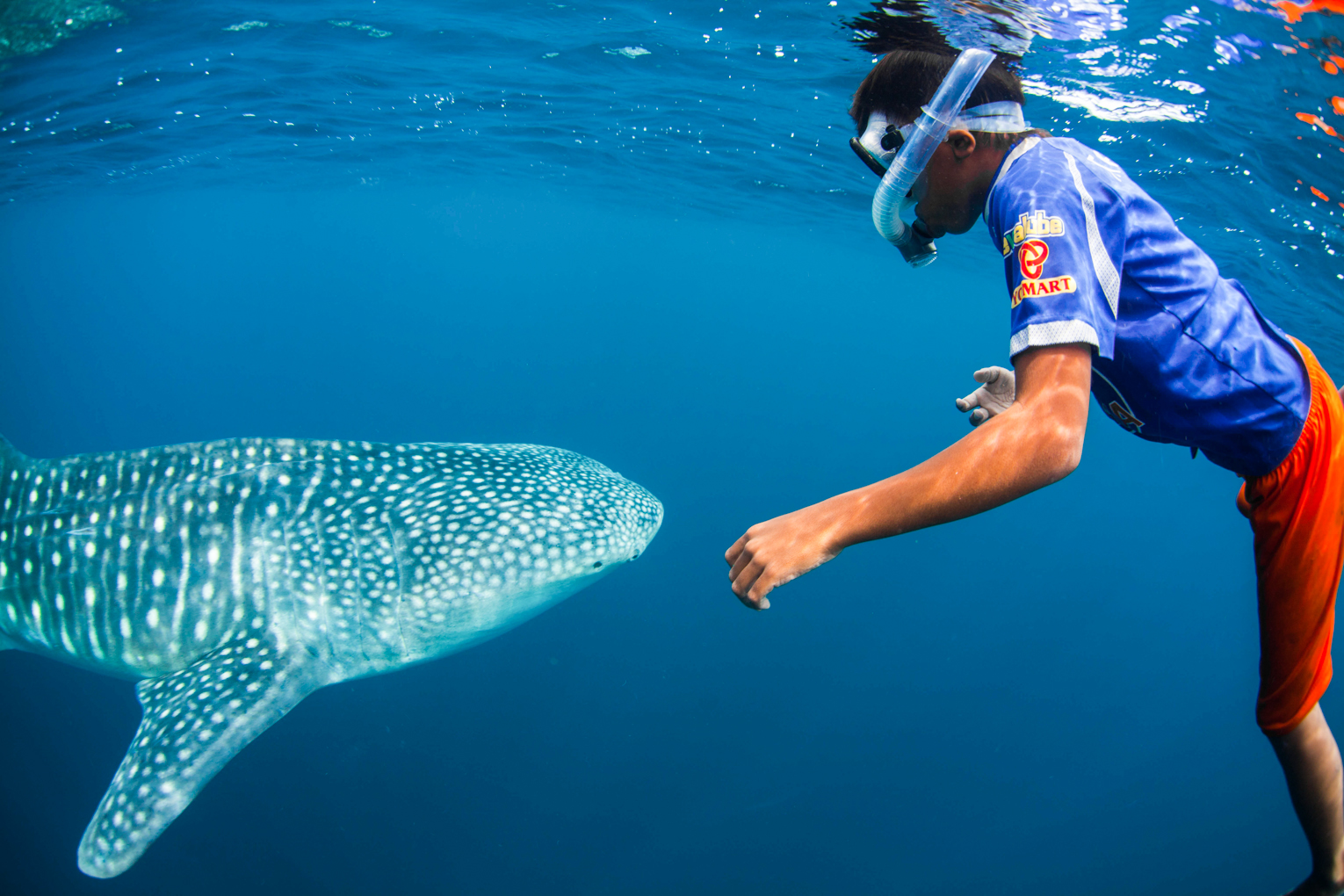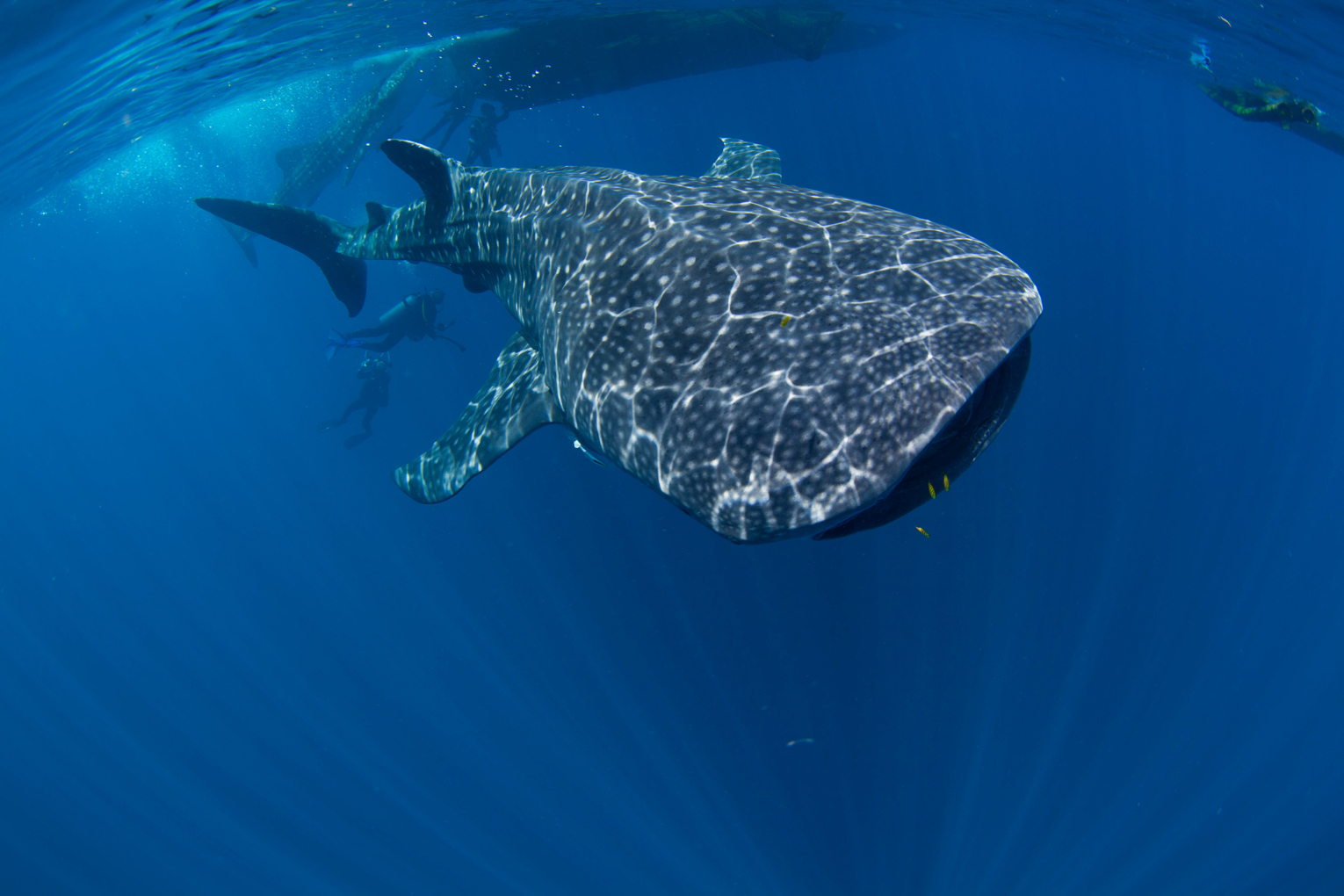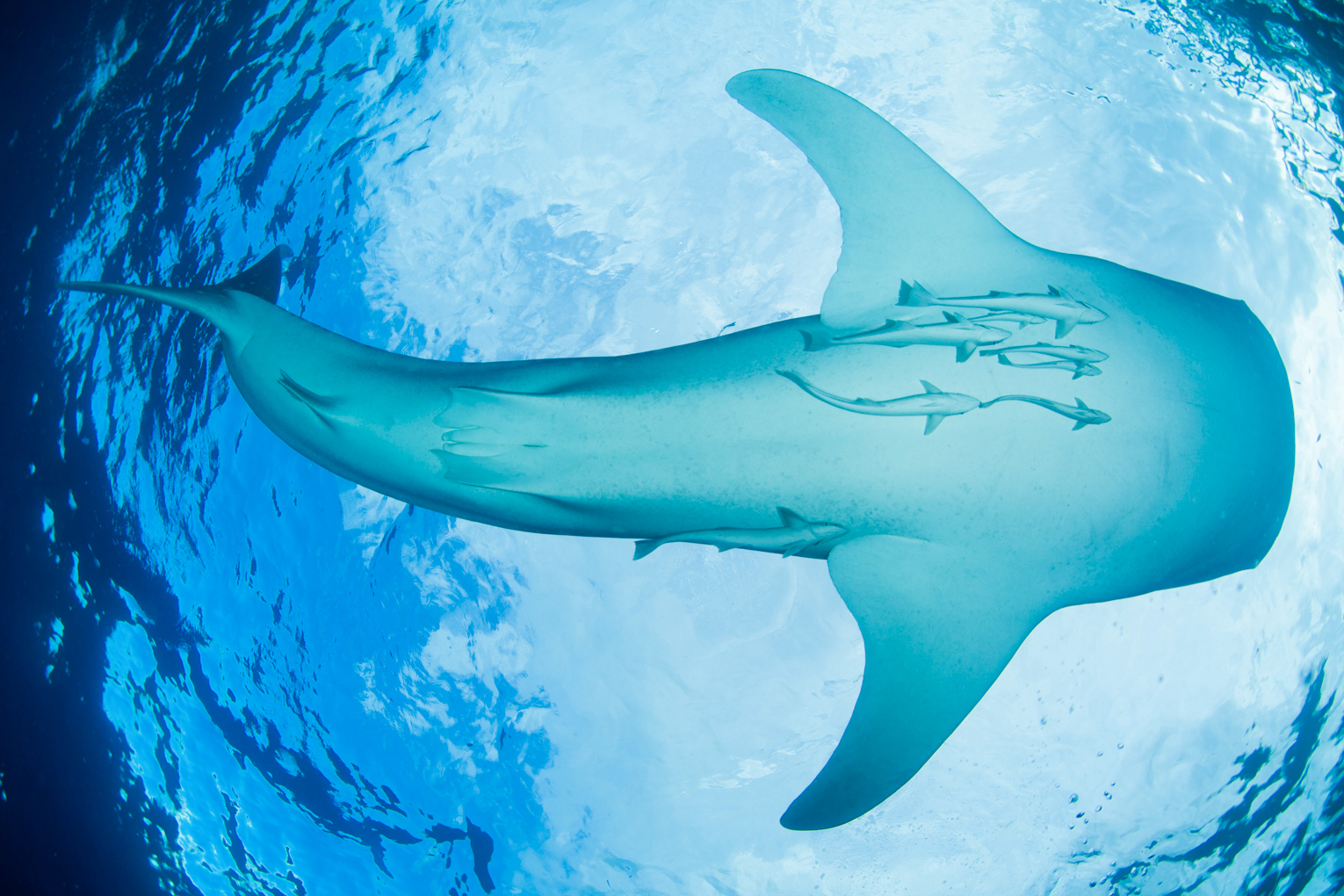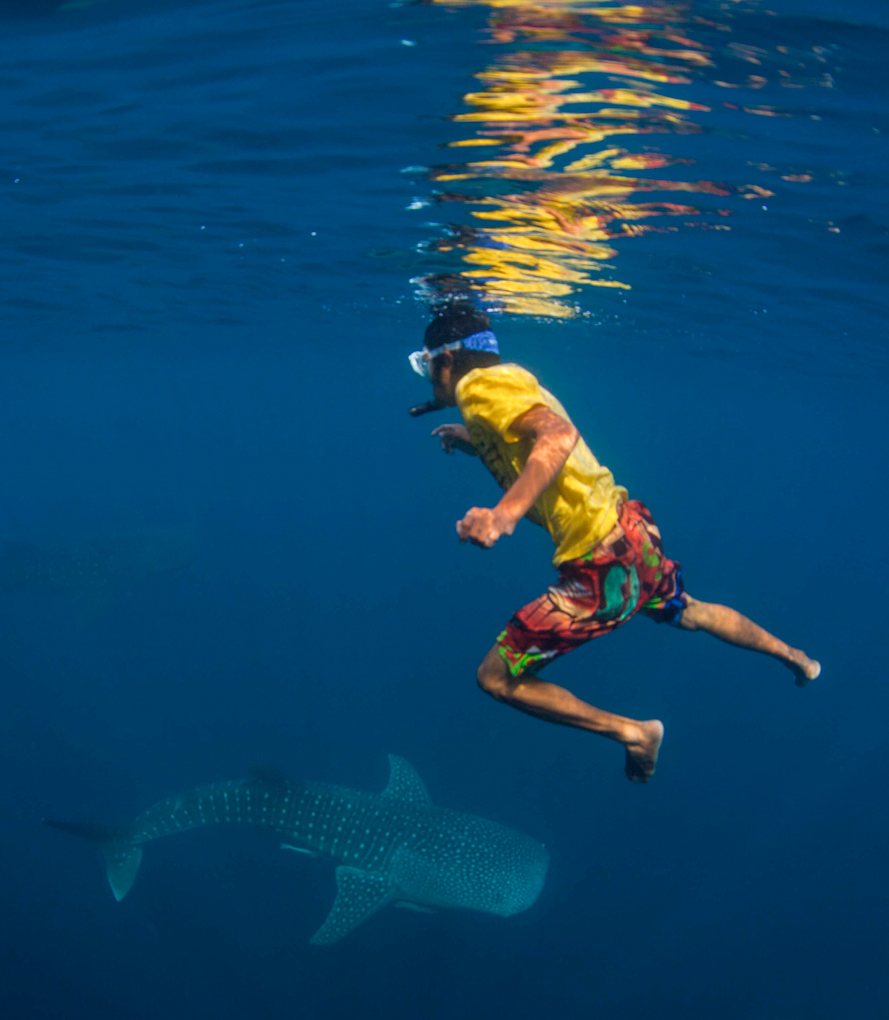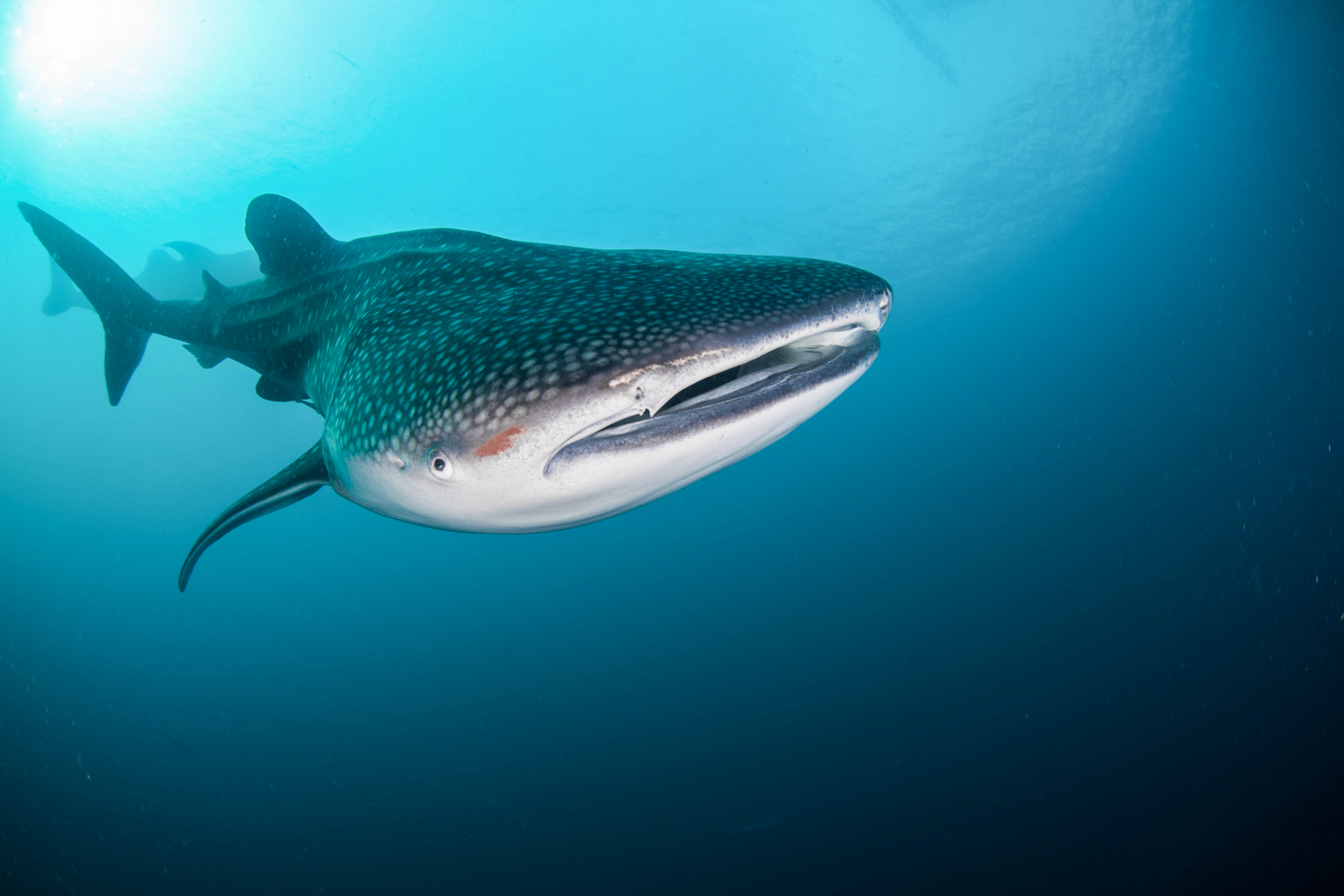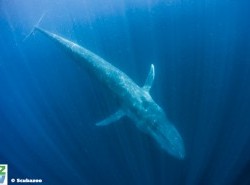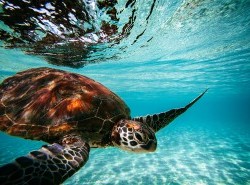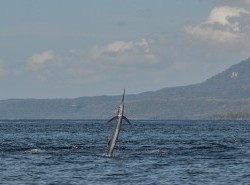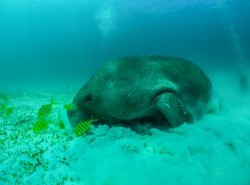In a remote bay on the north coast of West Papua in Indonesia, a little boy on a bagan fishing platform is staring into the water, fearful but fascinated. He watches as I suck in a lungful of air and dive down with my camera to where a group of slow moving whale sharks, some as long as 11 metres, has gathered.
The boy’s name is Fajar and he’s on his summer holidays. 48 hours ago, he was saying goodbye to his classmates at his school on the island of Sulawesi. He’ll be spending two weeks of his vacation here with his father, a fisherman who lives and works on this small wooden structure for months at a time, catching fish in the voluminous nets attached underneath. Bagan fishermen use lights attract plankton, which in turn attract planktivorous fish, squid and other predators. In the early morning hours they take up the nets, which are often filled with thousands of fish.
It’s the fish that attract the whale sharks of course. Primarily filter feeders, whale sharks are also perfectly happy to suck some of the smaller fish through the holes in the net, swallowing them whole. Whale sharks actually do have tiny teeth – around 3000 in each jaw, an evolutionary throwback that could soon disappear completely in a few hundred years. Unless the sharks themselves become extinct before that, decimated by their most deadly predator, Homo sapiens. Whale sharks are already classified as a vulnerable species, but they are still killed so their fins can be turned into soup, their skin into leather and their oils into cosmetics and medicine.
But the fishermen here, most of whom are from Sulawesi, don’t kill the whale sharks, because they believe the huge fish bring them good luck. They call them “Hiu Bintang” or Starry Sharks because of the pale spots and stripes that mark their skin. Some fisherman I’ve spoken to believe the huge fish bear secret maps of the heavens on their skin. But besides these beliefs, these days the fishermen have another reason not to harm the gentle giants – tourism.
"Some fisherman I’ve spoken to believe the huge fish bear secret maps of the heavens on their skin"
In 2002 the Indonesian Government declared Cendrawasih Bay a national park, affording, on paper at least, protection for the area and its marine life, including the whale sharks. It wasn’t until 2007 that the World Wildlife Fund (WWF) discovered the strange relationship that the whale sharks here had struck up with the bagan fishing crews. That was also the first year that I sailed these remote waters, when there was barely another boat to be seen. Since then, an increasing number of live aboards have been including Cendrawasih Bay on their itineraries. The boat operators pay the fishermen a licence fee to allow their guest to dive and snorkel with the whale sharks that congregate around the bagans.
The fishermen may respect the whale sharks, but they also fear them and wouldn’t dream of getting in the water with the crazy tourists. So when I suggested to Fajar that he try snorkelling with me, it was no surprise when he refused. But I kept on chatting with him with patience and humour and by the next day he reluctantly agreed to let me teach him how to snorkel.
There was barely enough time for him to get the breathing technique before the first of six whale sharks approached him with obvious curiosity. He panicked, so I had to lift him out of the water and calm him down. I’d explained the biology of whale sharks to him, so he knew that there was no danger – but swimming for the first time in open water with the biggest fish on the planet is intense to say the least!
Gradually his fascination overcame his nervousness and holding my hand gave him the security to explore the sharks up close – right up to their enormous mouths, where he could see them inhaling huge surges of seawater laced with tiny baitfish.
The bagan fishermen standing up on the platform were speechless and a little shamefaced at Fajar’s bravery. He finally hopped back onto the platform like a superhero and described his experience to the adults. To my amazement, he persuaded them one by one to get in the water and I found myself guiding a series of grizzled but nervous fishermen amongst the sharks. Afterwards, Fajar couldn’t stop grinning. He told me the whale sharks were his dad’s friends and that they’d keep him safe out on the bagan. “Wait till I tell my friends back at school about this,” he said with shining eyes. “They won’t believe it.”
